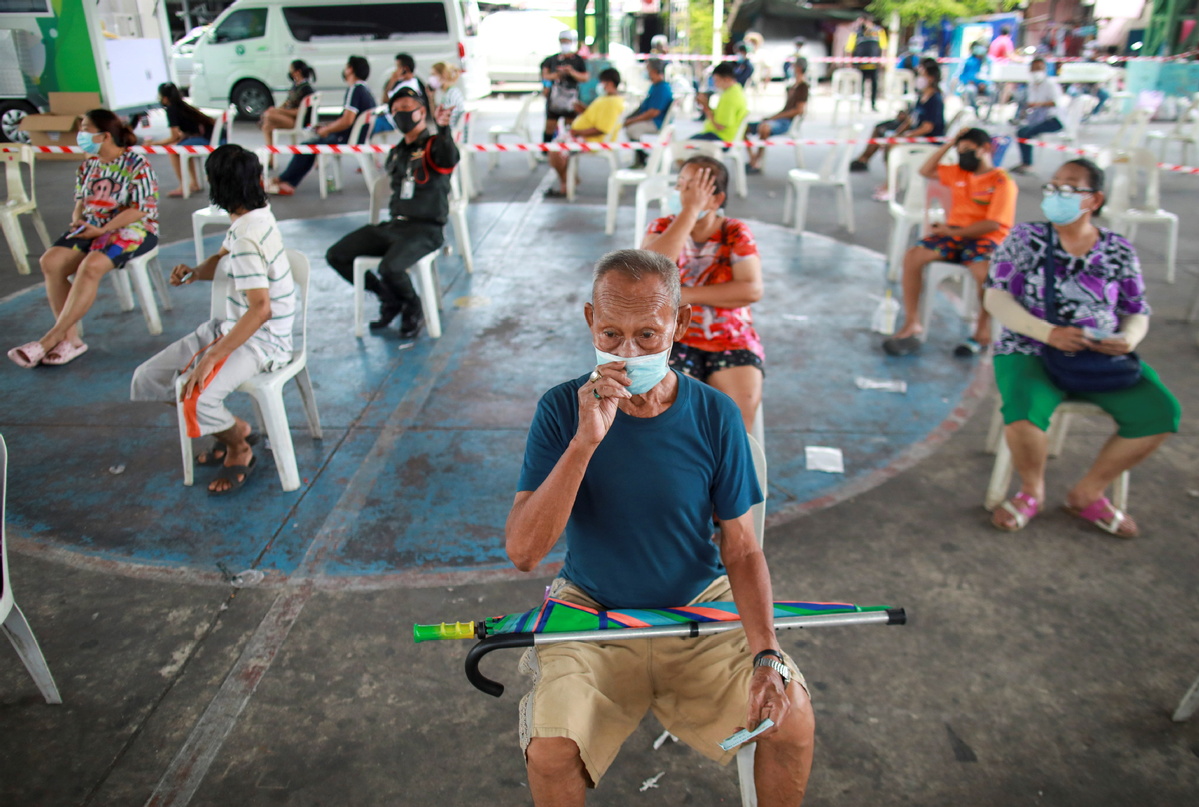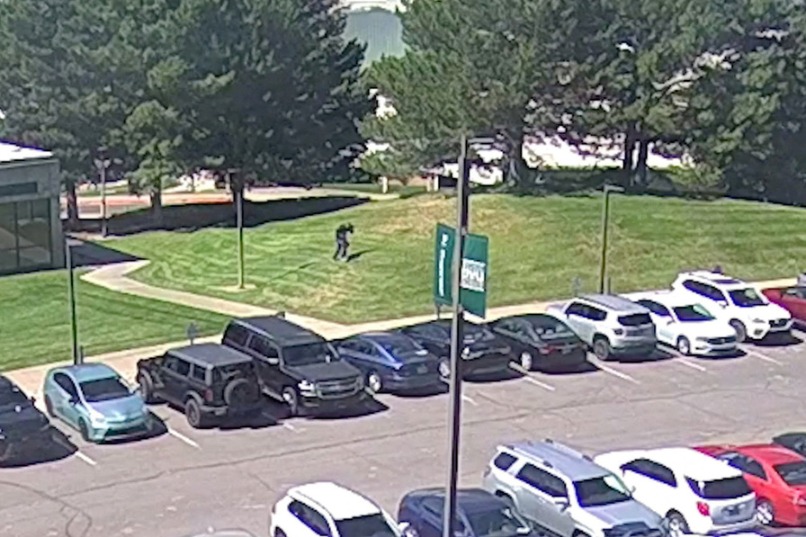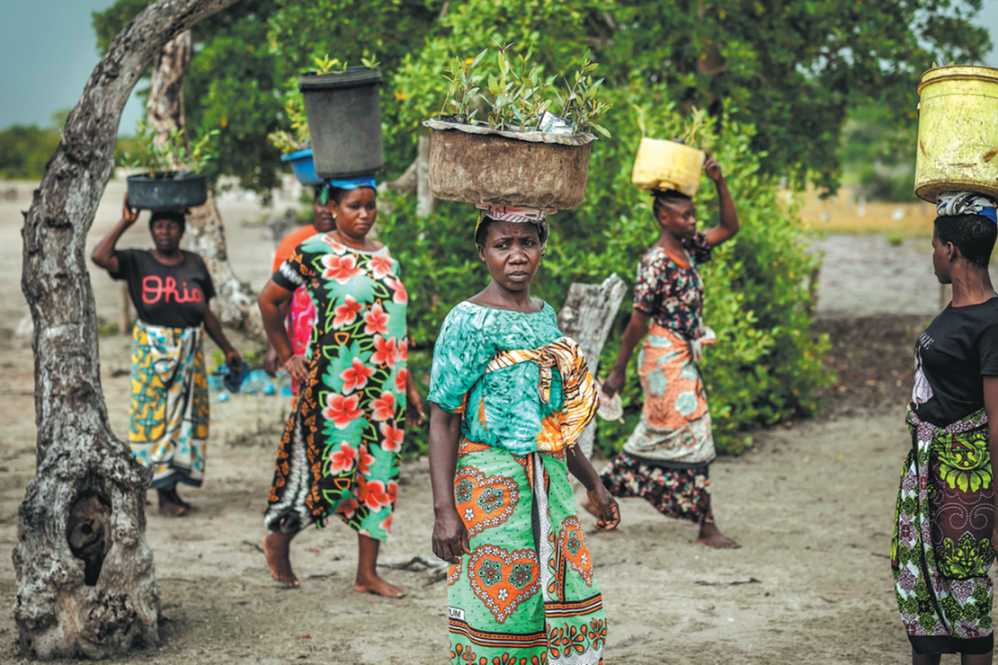Outbreak in Thailand draws wide concern as new variant hampers pandemic control


Despite Thailand's effective response during the beginning of the pandemic, the latest outbreak that infected over 40,000 people since April has shown how immense a challenge it is to deal with COVID-19, experts say.
"From a public health point of view, Thailand does not look like it's anywhere near the resolution of this current wave," said Jeremy Lim, associate professor at the Saw Swee Hock School of Public Health at the National University of Singapore.
"We are not even sure that it has reached the peak of the so-called epidemiology curve," Lim said. "The latest outbreak reflects how challenging it is to deal with COVID-19."
Thailand confirmed 2,112 new COVID-19 cases on May 5, bringing the total tally to 74,900, according to the country's Center for COVID-19 Situation Administration. The death toll has reached 318, after a new daily record of 31 deaths was reported on May 3.
Since Thailand detected on April 7 the first domestic transmission of B.1.1.7 – a highly contagious variant of the SARS-CoV-2 virus first identified in Britain – over 40,000 cases have been reported in the latest outbreak. The country only had about 4,000 total cases in early December.
Lim Wee Kiat, associate director of the Centre for Management Practice, Singapore Management University, said Thailand's response to COVID-19 in early 2020, which included the deployment of its health volunteer corps, has been remarkable.
"Its current predicament precisely demonstrates how challenging it is to balance the 'hammer and dance' routine," said Lim Wee Kiat.
The Thai government, he said, is keenly aware of the pressing issues, such as hospital bed shortage, and it is clear to officials that it is unpalatable to return to the national lockdown given that the pandemic has been around for more than a year.
He said this is also why the government chose to use "precision strikes" to ring-fence areas with high infection rates rather than "carpet bombing".
On May 1, Thailand began to implement tighter and stricter disease control measures to prevent the spread of the COVID-19. Masks are required in all public places while venues like pubs and karaoke bars are closed.
Six provinces – namely Bangkok, Chonburi, Chiang Mai, Nonthaburi, Pathum Thani, and Samut Prakan – were categorized as maximum and strict controlled areas. The number of maximum controlled areas also rose from 18 to 45 provinces. Another 26 provinces were selected as controlled areas.
As of May 4 morning, 28 provinces in Thailand have prohibited people from leaving their residences for limited hours during nighttime.
According to the new restrictions, the quarantine period for all travelers who wish to enter Thailand has been extended to 14 days, regardless of their country of origin or vaccination status. The Southeast Asian nation previously shortened the quarantine periods for vaccinated arrivals to just seven to 10 days.
Lim Wee Kiat said Thailand also needs to revise its vaccination strategy. "The government should work more closely with the private and people sectors to catalyze its vaccination schedule," he said.
Thailand started its vaccination rollout on Feb 28. As of May 3, the country has administered 1.49 million COVID-19 vaccine doses, using imported vaccines from China's Sinovac and British pharmaceutical company AstraZeneca.
According to statistics from online publication Our World in Data, the vaccination rate in Thailand is about 1.58 percent, far behind its Southeast Asian neighbors such as Singapore (23.32 percent), Cambodia (8.51 percent) and Indonesia (4.56 percent).
The Thai government has said that it will work closely with the private sector to speed up its COVID-19 vaccination program and achieve its goal of inoculating 50 million people by the end of this year.
Key business groups such as the Federation of Thai Industries said it has started negotiations with vaccine manufacturers including Sinovac, the United States' Moderna and Russia's Sputnik, according to local media Bangkok Post.
The recent outbreak has also cast a shadow on Thailand's economic recovery. In its latest Asian Development Outlook published on April 28, the Asian Development Bank lowered its 2021 GDP forecast for Thailand to 3 percent from its December projection of 4 percent.
"With the risk of a protracted COVID-19 wave continuing in the weeks ahead, there is a significant downside risk that restrictive lockdown measures will hit domestic economic activity and dampen GDP growth," said Rajiv Biswas, Asia-Pacific chief economist at global consultancy IHS Markit.
Retail trade will be among the key sectors to be affected, Biswas said.
"The Thai government can use targeted fiscal stimulus measures to help low-income households and badly impacted small businesses in sectors such as tourism to help them through the pandemic crisis," Biswas said.
In addition, Biswas said the two-week quarantine means that the prospects of international tourism restarting anytime soon have again been delayed indefinitely. "Due to the importance of international tourism for the Thai economy, this is a key negative factor for the near-term economic outlook," he said.
Neighboring country Laos initiated a 14-day lockdown of its capital Vientiane on April 22 after identifying a cluster infection linked to Thailand. The landlocked country had about 60 cases by April 20 but as of May 3, the number has skyrocketed to 966, according to data by Worldometer, a website which compiles global statistics of COVID-19.
"No country will be safe until every country is safe, especially here in Southeast Asia, where our countries are all geographically very close to each other," said Lim from NUS, who hopes a regional center for disease control can be formed for a more organized health response across the Association of Southeast Asian Nations, a regional bloc that includes Thailand.
Regarding the Thai government's announced plans to reopen the southern island of Phuket to vaccinated tourists from July 1, Lim said it is too early to talk about reopening borders. "But if we don't prepare Phuket to open … then we will never be able to get anything started," he said.
"We hope for the best and plan for the worst."

































